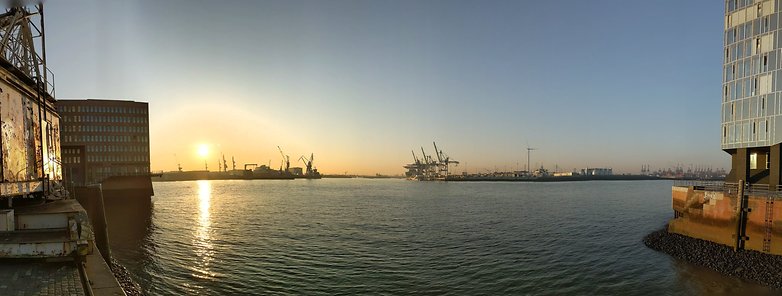Opinion | Buy your best Christmas gifts now!


If forecasts of economists prove to be true, the next few months will look rather bleak! This is because the global economy is caught up in supply chain bottlenecks, something that not even a container ship that remains stuck in the Suez Canal could top. If you dislike seeing nothing underneath the Christmas tree in December, you might want to hurry up and buy those presents now.
I know, I know! Christmas isn't about the presents, it's about the togetherness! But after spending last year Christmas alone, I'm rather reluctant to travel elsewhere this year without presents in tow. However, when I take a look at reports concerning the global economy and its supply chain challenges, I don't see a rosy future there.
Even smartphone manufacturers are now openly communicating that they have jitters about the Christmas season, especially when it concerns the "bargain season" in November. At the launch of the new Nokia T20, HMD Global revealed that even orders of around 50,000 units would be rather difficult to fulfill at the current rate.
This even prompted the manufacturer to go for a Unisoc SoC instead of Qualcomm or MediaTek in the new tablet. What HMD Global has communicated so openly here, however, will also no doubt affect large manufacturers as well.
How does it look for Samsung, Xiaomi, and others?
What do you do as a resourceful journalist when Google doesn't provide any answers? Right, one performs yet another Google search in a more refined manner, before actually asking the manufacturers themselves. Xiaomi, OnePlus and other manufacturers could not or would not give me any information about supply shortages around the Christmas period.
Instead, I had success with Samsung, who were a bit more transparent about this matter. Find out below the statement from Samsung on the question of whether supply shortages are to be expected at Christmas:
The current fluctuations in the semiconductor market are being felt throughout the technology industry and beyond. At Samsung, we are doing our best to offset the impact of these fluctuations and continue to work hard with our partners to address these challenges in our supply chain.
In short, yes, the situation is critical! But we are working with our partners to overcome the challenges. Samsung's answer does show something else: If even electronics giants like Samsung, who manufacture their own SoCs, have to prepare for the fluctuations, then something is really up. But all those concerns point to the fourth quarter of 2021, what's the big deal, right?
Who is stealing our Christmas presents?
The global economy consists of a dense network of companies that mine materials from the ground, producers, suppliers, manufacturers, and ultimately, retailers including us, the customers. When you buy a smartphone, not only do its components come from all over the world, but the smartphone is also sent around the world in individual parts to be assembled for the simple fact that labor is cheaper elsewhere.
These different steps taken has the advantage that smartphones equipped with the latest technologies cost less than $400. At the same time, however, this system is surprisingly fragile to any outside interference. This is because if just one link in this chain fails, the rest will be negatively affected in a domino effect. A (global supply) chain is only as strong as its weakest link. We'll get to why it doesn't necessarily mean ending up "empty-handed" later.

Michelle Brey of the Mercury cited two events as reasons for the current supply shortages: First, the already mentioned drama around the container ship "Ever Given", which remained stuck in the Suez Canal. On the other hand, port closures in China to contain the coronavirus pandemic.
Even though these factors contributed a large part to the global supply chain crisis, they don't quite address the underlying problem. That's because one important reason is the way goods are produced in the first place.
Just-in-time production was effective for a very long time
One term I kept coming across during my research is "just-in-time production", which is also known as "demand-synchronous production" in German. The principle is as simple as it is effective. Instead of having all the individual parts in stock when producing a game console, the manufacturing process is sequenced and synchronized with the procurement of parts at the right time.
Supply and production are then coordinated so that the required components are available at the right time and in the required quantity. Optimally, this reduces storage costs and inventory risk on the buyer's side, and lead times and capital commitment on the supplier's side. Definitely a win-win situation, right? Yes, until everything went belly up last year.

That's because events like the stuck ship in the Suez Canal, port closures in China, the ongoing drought in Taiwan that prevented chipmaker TSMC from producing, the shortage of truck drivers within the UK, and many other problems bring such a finely tuned and balanced system to a massive standstill.
After all, there's no way to compensate if deliveries stop suddenly. We have perfectly coordinated production with the delivery of goods, and stocks are insufficient if the supply chain no longer caters to warehouses.
Moreover, what was then saved as storage space for individual parts is now being sought for semi-finished products. Merkur reported in October about the need for parking spaces that car manufacturers require for semi-finished vehicles. They have to remain in storage there until the required individual parts are delivered, and that's how long clients will have to wait!
To avoid any confusion: The logic of just-in-time production will of course only refer to the production chain. Wholesalers such as Amazon, Best or Buy naturally purchase goods in such a way that they can compensate for delivery bottlenecks for a while. However, even such massive purchases will eventually run out over time. Hence, a more amicable solution is needed.
How does the economy solve the problem?
Like many after-effects of the coronavirus crisis, problems in the consumer electronics sector will only settle down in the long term. Ports will be able to return to their original capacity, for example, if they comply with new hygiene protocols, and according to analysts, supply chains should be running smoothly again by next year at the latest.
Incidentally, economist Vincent Stamer sees no issues for essential goods such as food in an interview with Die Zeit. So don't run to the supermarket again and panic buy 500 rolls of toilet paper! And there are also some creative solutions for the consumer electronics industry.
The manufacturer Canon, for example, has compensated for the supply bottlenecks of motherboards for multifunction devices in industrial use by shipping the devices without motherboards for the time being. The motherboards will be delivered later when they are available and installed by an employee. Of course, this speeds up the delivery process a little, but it also results in a number of "defective" printers in offices that will not be usable for an indefinite period of time.
Moreover, for the retail trade industry from which we obtain our products, such solutions are not really conceivable. Who wants to buy a PS5 that will only receive a processor in the next few months? As consumers, we will have to be patient and expect online shops to continue putting out virtual "out of stock" signs before Christmas.
If we listen again to the words of Vincent Stamers of the Kiel Institute for the World Economy, we will have to endure this crisis, if it is really noticeable for us, until next summer. However, the first signs of normalization can already be seen in the first half of next year.
How can we still save Christmas?
I have already suggested a solution in my headline: plan your Christmas shopping this year starting as early as October. That's how we spread out the risk when it comes to shipping time for goods that are normally available on popular e-commerces in December.
Even though it is unlikely that logistical problems can be solved by Christmas, this way, you will be able to get a little ahead of the critical wave that will most certainly occur before Christmas. Procrastinating our Christmas shopping is something we can definitely count on this year.
The second solution is much more Christmassy: rethink things a bit and think more locally and sustainably! If it doesn't have to be electronics, there are many local products that are produced, manufactured, and distributed in your area. If you do want to give away a smartphone or tablet, refurbished products are a great alternative.
The second-hand market also exists, of course, but since the smartphones are bought locally and, if necessary, refurbished and resold in your area, refurbished companies are not affected by the problems. Of course, all chips and components are already integrated in the used device!
How do you react to the reports about delivery bottlenecks surrounding Christmas? Will you skip the consumer spectacle this year or do you intend to postpone it? Let me know in the comments!




















The microchip crisis is going to be a relevant issue for me, since I would have wanted to replace my smartphone in February 2022. And no, throw my old phone at the junk yard isn 't going to solve the microchip shortage problem.
-
Admin
-
Staff
Oct 16, 2021 Link to commentTrue thing.